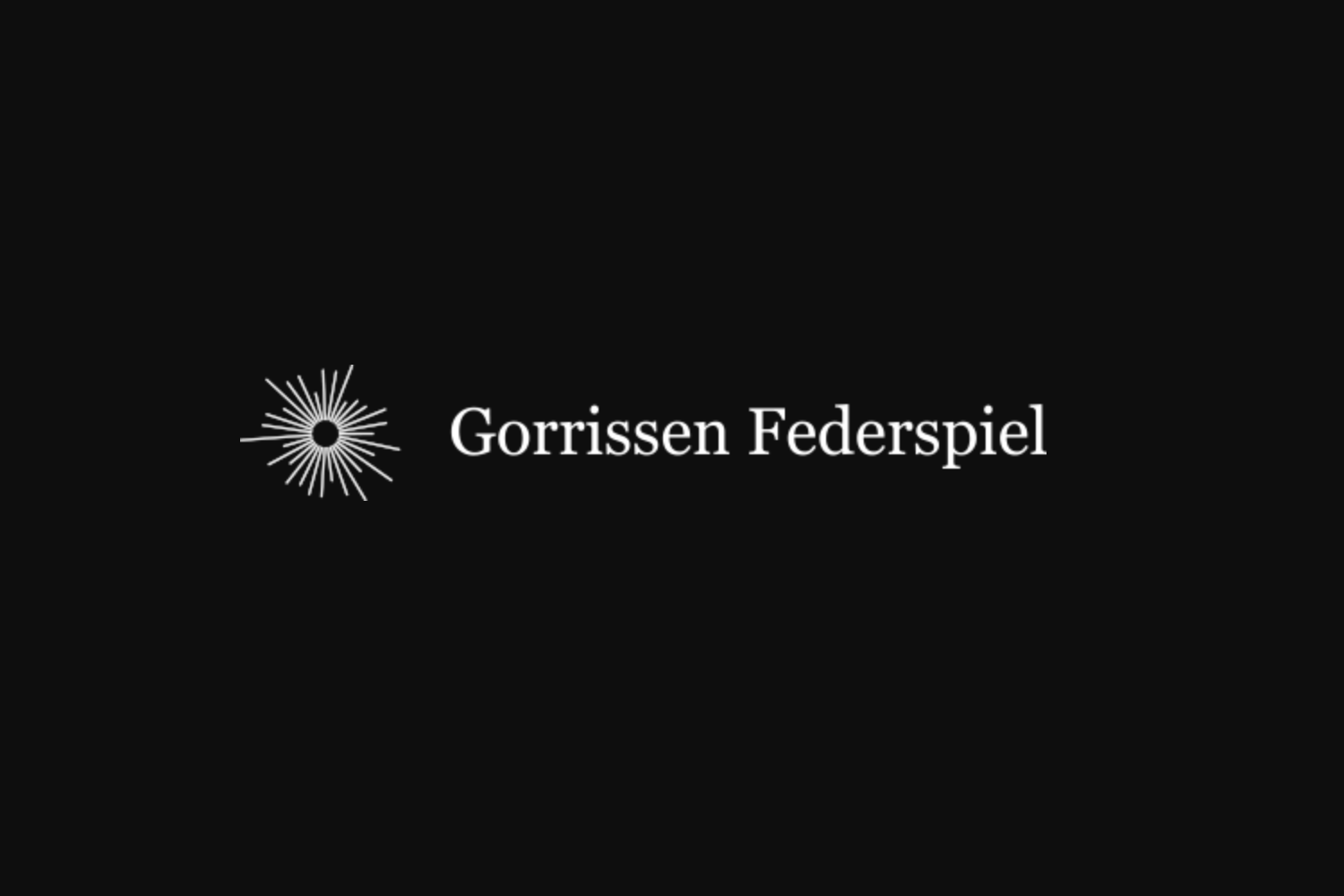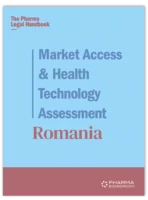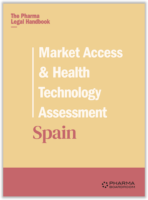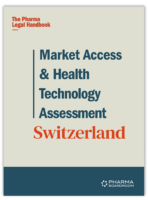Regulatory, Pricing and Reimbursement
Gorrissen Federspiel / Denmark
The legal framework for regulatory, pricing and reimbursement of drugs in Denmark. Prepared in association with Gorrissen Federspiel, a leading law firm in Denmark, this is an extract from The Pharma Legal Handbook: Denmark, available to purchase here for GBP 119.
1. What are the regulatory authorities with jurisdiction over drugs, biologicals, and medical devices in your country?
The Danish Ministry of Health is responsible for defining the overall framework for the national healthcare system. As a governmental body under the Ministry of Health, the Danish Medicines Agency (“DKMA”) is the Danish authority responsible for monitoring medicinal products for human and veterinary use, including biological medicinal products, and medical devices.
The DKMA is responsible for authorizing and inspecting pharmaceutical companies and other distributors, authorizing clinical trials, authorizing medicinal products, deciding whether medicinal products are eligible for reimbursement, overseeing adverse event reporting, and monitoring medical devices.
2. What is the regulatory framework for the authorization, pricing, and reimbursement of drugs, biologicals, and medical devices?
Medicinal products
The main Danish legislation on authorization, pricing, and reimbursement of medicinal products is the Danish Medicines Act (Consolidated Act no. 99 of 16 January 2018, “Medicines Act”) and the Danish Pharmacies Act (Consolidated Act no. 801 of 12 June 2018).
The Medicines Act is supplemented by a large number of executive orders and guidelines issued by the DKMA.
Further, as an EU member state Denmark is required to follow the union rules governing authorization of medicinal products. The provisions set out in the EU directives are transposed into Danish acts, and the applicable EU regulations, e.g. the Regulation (EC) no. 726/2004 on procedures for the authorisation and supervision of medicinal products for human and veterinary use, are directly applicable.
Biologicals
The Danish Medicines Act and secondary legislation issued under the Medicines Act also apply to biologicals.
Medical devices
The Danish Act on Medical Devices (Consolidated Act no. 139 of 15 February 2016, “Act on Medical Devices”) constitutes the main regulatory framework for the authorization, pricing and reimbursement of medical devices.
The Act on Medical Devices is supplemented by a number of executive orders issued by the DKMA, e.g. the two main executive orders on i) medical devices and products without a medical purpose, and ii) in vitro diagnostics medical devices.
As an EU member state Denmark is required to follow the union rules governing authorization of medicinal products and medical devices, e.g. Regulation (EU) 2017/745 of 5 April 2017 on medical devices and Regulation (EU) 2017/746 of 5 April 2017 on in vitro diagnostic medical devices.
3. What are the steps to obtaining authorization to develop, test, and market a product?
Medicinal products
Development and testing
In order to initiate and conduct a clinical trial with medicinal products, the person or entity in charge of the initiation, monitoring and financing of the trial (the sponsor) must apply for an authorisation from the DKMA. Furthermore, clinical trials involving humans must be approved by a competent state medical committees. Non-interventional trials may as a starting point be implemented without the authorisation from the DKMA.
Following the entering into force of the Clinical Trials Regulation (Regulation EU No 536/2014), all applications for clinical trials initiated after 31 January 2022 (and amendments and other changes to ongiong clinical trials) must as a starting point be submitted through the new centralized EU portal – the Clinical Trials Information System (CTIS). This also applies in case of clinical trials that will only take place in Denmark.
Guidance on how to submit applications for clinical trials under the Clinical Trials Regulation and the CTIS can be found on the DKMA’s website (https://laegemiddelstyrelsen.dk/en/licensing/clinical-trials/new-european-clinical-trial-regulation-from-the-31th-january-2022/#) and the EU Commission’s website (https://www.ema.europa.eu/en/human-regulatory/research-development/clinical-trials/clinical-trials-information-system-training-support).
Manufacturing
The manufacture, import, export, storage, distribution, provision, dispensing, splitting and packaging of medicinal products and intermediate products intended for further processing into medicinal products are subject to authorization from the DKMA.
Applications for authorizations to manufacture medicinal products must be submitted to the DKMA by way of the agency’s application form through the agency’s extranet DKMAnet or by way of e-mail to the DKMA.
The application form must contain information, i.a., on organization of the company, the site master file (in case of first application), the name and legally registered address of the manufacturer and address(es) of the manufacturing site(s), details of the manufacturing operations and of the products to be manufactured, information on quality control, any contract manufacturing sites and/or contract laboratories, qualified person(s), and details of the responsible management.
In order to manufacture, import and distribute active substances intended for use in the manufacture of medicinal products for human use that are covered by a marketing authorization, a company must also register with the DKMA.
Marketing
As a starting point, only medicinal products that have been authorized by the DKMA or the European Commission may be marketed and/or dispensed in Denmark.
In order to obtain a marketing authorization for a medicinal product, the applicant must show that the benefits of the medicinal product outweigh the risks and side effects, that the medicinal product is safe and that it is of a sufficiently high and consistent quality.
When applying for a marketing authorization, the manufacturer may choose between four types of procedures:
- The centralized procedure,
- The decentralized procedure,
- The national procedure, or
- The mutual recognition procedure.
While the European Medicines Agency (“EMA”) is responsible for the centralized procedure, the DKMA is responsible for granting of marketing authorizations through the decentralized procedure, the national procedure and the mutual recognition procedure.
Pursuant to the centralized procedure, the holder of the marketing authorization is allowed to market the medicine throughout the EU. The application for a centralized marketing authorization is submitted to the EMA who is responsible for review of the application, and the European Commission oversees final authorization. The centralized procedure is mandatory for new biological medicines, for medicines for orphan diseases, and medicines for certain defined indications (e.g. HIV, cancer and diabetes). In other circumstances, the centralized procedure can be chosen, e.g. in case of a new active ingredient.
Under the decentralized procedure, the applicant may submit identical applications in a number of chosen EU/EEA countries – the concerned member states. The applicant must request a reference member state to be responsible for the first assessment of the application, prepare a draft assessment report, a draft summary of product characteristics and a draft of the labelling and package leaflet. Once the reference member state has drafted an assessment report, etc., the concerned member states must as a starting point approve the assessment report, etc. If the any of the concerned member states are not able to do – on the grounds of potential serious risk to public health – then the matter of disagreement must be referred to settlement through a special coordination group procedure (the article 29 procedure).
The mutual recognition procedure follows the same procedure as the decentralized procedure with the main difference being that medicinal product in question has already received a marketing authorization at the time of application. The concerned member states are as a starting point obliged to recognize the assessment and the marketing authorization granted by the reference member state.
In special circumstances, the DKMA may permit the sale or dispensing of pharmaceutical products that are not covered by a marketing authorization. Such compassionate use permits are usually only granted if there is no relevant, alternative medicinal product marketed in Denmark, and if the product in question is authorized abroad.
Further, a marketing authorization is not required for medicinal products for use in clinical trials.
Medical devices
In Denmark, medical devices are not authorised by the authorities. The main legislation is found in the Danish Act on Medical Devices (Consolidated Act no. 139 of 15 February 2016)Regulation (EU) 2017/745 on medical devices and Regulation (EU) 2017/746 on in vitro diagnostic medical devices. These regulations include detailed rules on medical devices, including more strict obligations on the different actors (e.g. manufacturers, importers and authorised representatives) and requirements for clinical investigations.
Medical devices are categorized in four risk classes: class I (lowest risk), class IIa, class IIb, and class III (highest risk).
As a starting point, it is the manufacturer that is responsible for the classification and conformity assessments of a medical device in accordance, i.a., with the Act on Medical Devices and the supplementing Executive Orders.
For products in classes IIa-III, the conformity assessment of devices must be made in collaboration with a notified body.
A notified body is an organisation designated by an EU member state to assess the conformity of certain product before they can be placed on the market.
The following entities must register with the DKMA if they are headquartered in Denmark:
- Manufacturers of medical devices in classes I, IIa, IIb and III, active implantable medical devices, custom made devices, and system and medical treatment packages (and Danish representatives of non-EU manufacturers),
- Manufacturers of in vitro diagnostic devices (IVD),
- Distributors and importers of medical devices, and
- Stores specialising in the sale of medical devices.
Development
For medical devices within class I, the manufacturer is responsible for monitoring the efficacy and safety of the device. For medical devices within classes IIa, IIb and III, the technical documentation of the device must be reviewed and assessed by the notified body.
Clinical investigations involving medical devices must be authorized by the DKMA (and the relevant Danish State Medical Committee):
i) Where a clinical investigation is to be conducted to further assess, within the scope of its intended purpose, a device which already bears the CE marking, and where the investigation will involve submitting subjects to procedures additional to those performed under the normal conditions of use of the device and those additional procedures are invasive or burdensome, the sponsor must obtain an opinion from the applicable Danish State Medical Committee,
ii) Where a clinical investigation is to be conducted to assess, outside the scope of its intended purpose, a approval from the DKMA and the relevant Danish State Medical Committee must be obtained,
iii) Where a clinical investigation is carried out as part of the clinical evaluation for conformity assessment purposes, a approval from the DKMA and the relevant Danish State Medical Committee must be obtained, and
iv) For other clinical investigations not performed pursuant to the purposes mentioned above, the sponsor must obtain an opinion from the applicable Danish State Medical Committee.
Until the EU database Eudamed is available, the sponsor of a clinical investigation must submit its application directly to the Danish DKMA using the online format found on the DKMA’s website. The application can be submitted in Danish or English, except that certain documents must be submitted in Danish (a general abstract/summary for the investigation, the patient information and consent form, and other written information intended for the participants). The application must include, i.a., the clinical investigation plan, the investigator’s brochure, the subject information and informed consent form, statements certifying that the device complies with the essential requirements, a description of the intended use of the device, a copy of the approval from the research ethics committee, pictures of the device.
Marketing
Before a medical device may be placed on the market, the device must i) fulfil the requirements set out in the Executive Order on Medical Devices (i.e. requirements as to labelling, safety and performance), ii) be subject to an assessment of conformity, and iii) be CE marked.
For devices within class I, the manufacturer is responsible for the CE marking. For devices in classes IIa-III, a notified body must be involved in the certification. The purpose of the CE marking system is to ensure that the product meets the relevant EU requirements with regard to quality, safety and efficacy.
Other products
Natural medicinal products, herbal medicinal products and traditional herbal medicinal products
Natural medicinal products and traditional herbal medicinal products must be authorised or registered by the DKMA before they may be sold. Please see Chapter 4.
Vitamin and mineral products
Vitamin and mineral products are as a starting point not categorized as medicinal products. However, strong vitamin and mineral products where the content of vitamins and minerals are considerably higher than the normal daily requirement can be sold outside pharmacies in Denmark, provided they have been authorised by the DKMA. Such products may only be authorised to prevent and cure cases of deficiency.
When authorizing vitamin and mineral products, the DKMA sets out the same requirements as to manufacture, quality and safety as for natural medicinal products. Please see Chapter 4.
4. What are the approximate fees for each authorization?
Medicinal Products
The below is an excerpt of the overview of the current fees for new marketing authorizations and company registrations (2022):
| TYPE OF PRODUCT | PROCEDURE | DELIMITATION | FEE (IN DKK) |
| Ordinary medicinal products (and vitamin and mineral preparations) | National | Fully documented application | 196,559 |
| Decentralized | Fully documented application | 273,346 | |
| Mutual Recognition | Applications for new marketing authorization | 28,096 | |
| Natural medicinal products (and herbal medicinal products) | National | 83,605 | |
| Decentralized | 97,029 | ||
| Mutual Recognition |
26,904
|
Separate fees are applicable for bibliographic applications, hybrid applications, analogues and generics, as well as for renewals and variations. Also, additional fees are applicable for applications for marketing authorizations and variations for companies outside the EU/EEA.
The following fees apply with respect to applications for authorization or registration of companies:
| COMPANY AUTHORIZATIONS AND REGISTRATIONS | APPLICATION FEE (IN DKK) | ANNUAL FEE (IN DKK) |
| Authorization to manufacture and import medicinal products. | 50,350 | 50,350 |
| Authorization to wholesale distribution. | 15,538 | 15,538 |
| Authorization for retail sale of OTC medicinal products. | 950 | 950 |
| Authorization for retail sale of medicinal products for production animals. | 48,425 | 0.065 per cent of the distributor’s total sale of medicinal products for production animals |
| API manufacturing. | 50,350 | 50,350 |
| API import and distribution. | 15,538 | 15,538 |
Separate fees apply with respect to inspections conducted by the DKMA and for notification about prices.
Medical Devices
For companies that manufacture, import and distribute medical devices (as well as their EU representatives and stores specializing in medical devices), there are two applicable fees:
- Registration fee for manufacturers and authorised representatives: DKK 1,188
- Registration fee for importers and distributors: DKK 1,192
In addition to the registration fees, two annual fees will also be charged. These annual fees will depend on the number of employees of the company in question.
With regard to applications for clinical investigations for medicinal prod ucts, these are the current fees (2022):
- Class I devices (non-implantable devices not intended for long term use): DKK 52,095
- Class IIa devices (non-implantable devices not intended for long term use): DKK 52,095
- Class IIb devices (non-implantable devices not intended for long term use): DKK 52,095
- Class IIb devices (implantable devices and devices intended for long term use): DKK 70,017
- Class III devices: DKK 70,017
- Active implantable devices: DKK 70,017
5. For how long are marketing authorizations/registrations valid? How are marketing authorizations/registrations renewed?
Medicinal products
A marketing authorization for a medicinal product is valid for five years, subject to compliance with the requirements set out in the Danish Medicines Act. The DKMA may prolong the marketing authorization, if the risk/benefit analysis continues to be beneficial. The renewal application must be submitted at least nine months before the marketing authorization expires.
A prolonged marketing authorization is valid for an indefinite period of time (subject to compliance with the requirements set out in the Medicines Act), unless the DKMA specifically determines that the marketing authorization should only be prolonged for an additional five year period.
A marketing authorization will cease to be valid if not used for three consecutive years.
The renewal of a marketing authorization is subject to a fee payable to the DKMA.
Registration with the DKMA is also subject to annual fees. Please see Chapter 1, Question 4.
Medical devices
Registration with the DKMA for companies that manufacture, import and distributes medical devices (as well as their EU representatives and stores specializing in medical devices), is subject to annual fees.
6. How does the authorization process differ between brand- name products and generic products? Are there differences for local manufacturers versus foreign- owned manufacturers?
Generic products
As a starting point, the requirements for brand-name products and generic products are not different. However, an abridged procedure is available for marketing authorizations for generic medicinal products.
The Danish legislation implements the applicable EU directives on medicinal products, in including Directive 2001/83/EC on the Community code relating to medicinal products for human use. Consequently, the Danish rules on the abridged procedure correspond to Articles 10-10c of that Directive. This means, for example, that applicants will not be required to provide the results of pre-clinical tests and clinical trials if it is possible to demonstrate that the medicinal product is a generic of a reference medicinal product that is or has been authorised for not less than eight years in a country of the EU/EEA.
A company applying for an authorisation of a generic medicinal product must prove that i) the active substances is the same as that contained in the original product, ii) the manufacturer is able to manufacture the medicine in accordance with applicable requirements, and iii) that the right amount of the active substance goes to the place in the body where is has an effect.
Further, while the manufacturer of a generic medicine is not required to repeat animal and human trials, the applicant will still be required to provide data on bioequivalence studies to confirm that the medicine’s active ingredient is absorbed and excreted by the body in the same speed as the original product.
Foreign products
Only medicinal products that have been authorized by the DKMA or the European Commission may be marketed and/or dispensed in Denmark.
Denmark recognizes authorizations granted by the European Commission under the centralized procedure.
In addition, under the mutual recognition procedure, the DKMA generally recognizes authorizations granted by the regulatory authorities of other EU/EEA member states. Non-EU authorizations are not recognized.
The import of medicinal products or intermediate products from third countries requires a manufacturing and importation authorization because the import of medicines is considered a manufacturing activity. The Danish Medicines Act provides that applicants for and holders of marketing authorizations must be established in an EU/EEA country. However, the holder may designate a Danish representative.
7. How are combination products (drug + drug, drug + biologic, drug + device, biologic + device, drug + biologic + device) regulated?
The Danish Medicines Act does not apply to foodstuffs, dietary supplements, animal feed, cosmetics, biocides, radionuclides, or medical devices.
However, the Danish Medicines Act provides that where a product (based on an overall assessment of characteristics) may be comprised by both the definition of a medicinal product and by the definition of a product within another legislative area, and it is not immediately clear which legislation the product should be governed by, the DKMA may decide that the product in question is to be governed by the Danish Medicines Act.
8. How is compliance with regulations monitored and evaluated? Is the regulatory regime comparable with the U.S. Food and Drug Administration or the European Medicines Agency expectations and requirements?
Pharmacovigilance
The DKMA has a division for pharmacovigilance, which handles and analyses adverse reaction reports from citizens, healthcare professionals and the industry.
Healthcare professionals must report any suspected adverse reactions and serious adverse reactions to the DKMA within 15 days after such reactions have come to their attention. Patients, relatives and animal owners may also report adverse reactions on a voluntary basis.
Pharmaceutical companies (the marketing authorization holders) must have in place a system for pharmacovigilance, and must register, monitor and report side effects. A marketing authorization holder (of medicinal products for humans) must submit all suspected adverse reactions to the EudraVigilance database. The companies must also submit regular periodic safety updates to the DKMA (the periodic safety updates must be submitted through the PSUR Repository). A pharmaceutical company must also appoint a qualified person responsible for pharmacovigilance.
The DKMA maintains a register of reported adverse reactions, and must also report such adverse reactions to the EMA and other national authorities responsible for medicinal products in the other EU/EEA countries. Also, the DKMA must keep the marketing authorization holder informed.
As part of its pharmacovigilance system, the DKMA conducts scientific evaluations of the benefit-risk balance of the medicinal products based on the information submitted to it. The agency determines whether it is necessary to implement safety measures, and may also decide to change, suspend or withdraw a marketing authorization if the benefit-risk balance calls for it.
Inspections
The DKMA conducts routine inspections both with respect to pharmacovigilance, adverse reaction reporting and quality management.
The DKMA also inspects companies that have an authorization under Section 39 of the Danish Medicines Act (i.e. companies that are authorized to manufacture, import, export, store, resell, distribute, dispense, split and package medicinal products) for compliance with the Danish Medicines Act and the related Executive Orders. The frequency of such inspections is based on the DKMA’s risk assessment of the company’s activities. Certain changes in the company’s activities may also give rise to an inspection.
After an inspection, the DKMA prepares an inspection report describing any deviations.
The DKMA may also issue GMP and GDP certificates or statements of non-compliance based on the agency’s GMP and GDP inspections. GMP certificates will as a starting point be valid for three years and GDP certificates will as a starting point be valid for five years from the date of the inspection.
Medical devices
Incidents with respect to medical devices must also be reported to the DKMA (and to the Danish Patient Safety Database).
On the basis of incident reports received (e.g. from healthcare professionals, manufacturers, distributors and/or importers), the DKMA ensures that the necessary measures are being implemented.
9. What is the potential range of penalties for noncompliance?
Medicinal products
The DKMA may change, suspend or withdraw a marketing authorization, e.g. in case the benefit-risk ratio is not favourable, or in case the information stated by the applicant in support of the marketing authorization application is incorrect or if the marketing authorization holder fails to fulfil any terms of the marketing authorization.
The DKMA may also change, suspend or withdraw a company authorization granted pursuant to Section 39 of the Danish Medicines Act (i.e. authorization to manufacture, import, export, store, resell, distribute, dispense, split and package medicinal products, e.g. if the conditions for the authorization or the terms of the authorization are not complied with, or if the holder of the authorization refuses to participate in the DKMA’s inspections.
The DKMA may also issue prohibitions against sale and dispensing of a medicinal product, order that the product should be withdrawn from the market, or order the manufacture or import of a medicinal product.
Violation of the rules on marketing authorizations, on authorizations pursuant to Section 39, or failure to comply with orders issued by the DKMA is liable to a fine or imprisonment for up to 18 months.
Medical devices
In the event of non-compliance with the rules on medical devices, a notified body may limit, suspend or withdraw an issued certificate.
The DKMA may also restrict or prohibit the marketing or use of a medical device or order a medical device withdrawn from the market in case the DKMA finds that the medical device constitutes a risk for patients’, users’ and/or any third parties’ health and safety.
Violation of the rules may be subject to fines.
10. Is there a national healthcare system? If so, how is it administered and funded?
Denmark has a national healthcare system based on the principles of free and equal access to healthcare for all citizens. The system is funded mainly by the Danish tax-payers supported by a system of governmental block grants, reimbursements and equalization schemes.
The Danish healthcare system operates on three levels:
- the national level (i.e. the state, where the Danish Ministry of Health is responsible for the overall framework of the healthcare system);
- the regional level (Denmark is divided into five regions governed by regional councils, which are responsible for hospitals and health services provided by general practitioners and specialists in private practices); and
- the local level (Denmark consists of 98 municipalities; in the healthcare area the municipalities are responsible for local health and elderly care services, including disease prevention, home nursing, school health services, children’s dental treatment, and nursing homes).
11. How does the government (or public) healthcare system function with private sector healthcare?
In Denmark citizens may, within certain limits, freely choose any public hospital (and some private hospitals). Denmark also has a number of private hospitals and health clinics where the citizens pay for treatment themselves.
If a Region cannot ensure that treatment will be initiated within 30 days, patients have the right to a so-called extended free choice of hospital (Danish: udvidet frit sygehusvalg).
Many Danish citizens also have health insurance covering expenses for private healthcare services.
Private payments are generally applicable for dental services, optometry, medicinal products, cosmetic surgery, etc.
12. Are prices of drugs and devices regulated and, if so, how?
Pricing in the primary sector
At manufacturing level, the company placing the medicinal product on the market (or the importer of the medicinal product) is free to determine the prices for prescription medicinal products when selling to wholesalers, pharmacies and/or other authorised retail sellers.
The company placing the medicinal product on the market must report a so-called pharmacy purchase price (Danish: Apoteksindkøbspris) to the DKMA at least 14 days prior to launch of the product. All prices are published on the DKMA’s website www.medicinpriser.dk. The prices can be changed every 14 day by notifying the DKMA.
In Denmark, pharmacies have the exclusive right to sell prescription-only medicinal products (and most over-the-counter medicinal products) to consumers. The medicines reserved for the exclusive sale in pharmacies are sold at the same price from all pharmacies and the pharmacies must charge the so-called pharmacy retail price (Danish: Forbrugerpris) when selling to consumers. The pharmacy retail price is calculated on the basis of the pharmacy purchase price and consist of the pharmacy purchase price, a retail margin and potentially different handling fees.
The prices for over-the-counter medicines that are not reserved for the exclusive sale in pharmacies are not specifically regulated, and the pharmacies and other authorised retailers are free to determine the prices.
Pricing in the secondary sector
Within the secondary sector (medicines for hospitals) the pharmacies at the public Danish hospitals are monitored by the five Danish Regions. The Danish Regions have established a wholesale distribution company, Amgros, which handles price negotiations, tendering and procurement of the majority of the medicine used at the Danish public hospitals.
For new medicines, the Danish Medicines Council issues recommendations with prioritized list of medicines to be used for patients with specific diseases. For the purpose of the recommendations, the Danish Medicines Council starts by conducting a health economic assessment. Based on this assessment, Amgros negotiates the price of the medicine with the applicant. After negotiations with the applicant, Amgros drafts a negotiation memo for the Danish Medicines Council detailing, i.a., the price level compare with the existing market. Based on this memo, the Danish Medicines Council decides whether it will recommend the medicine as a possible standard treatment at the public hospitals.
Further, we note that the Danish Association of the Pharmaceutical Industry on behalf of its members have entered into agreements with the Danish Ministry of Health and the Danish Regions which introduce so-called “price ceilings” for medicinal products used in the hospital sector and for medicinal products eligible for reimbursement. The current agreements will remain in effect until April 2023.
13. How are the drugs and devices used by patients paid for? What roles do public and private payers play?
In Denmark, the DKMA decides on the reimbursement status of each medicinal product. The cost of medicines eligible for reimbursement is funded by the state in the primary sector and by the Danish Regions in the secondary/hospital sector.
The DKMA determines which medicinal products that are eligible for reimbursement based on an application from the company placing a medicinal product on the market. The DKMA may determine that reimbursement should be conditional, e.g. on it being prescribed to certain patient groups or specific diseases.
There are three types of general reimbursement i) reimbursement for prescription-only medicinal products, ii)) conditional reimbursement for prescription-only medicinal products, and iii) conditional reimbursement for over-the-counter medicinal products.
In special cases, the DKMA may also grant individual reimbursement for individual patients. Such reimbursements are granted on the basis of an application from the patient’s doctor. The DKMA may also grant a reimbursement for the terminally ill.
The DKMA determines the annual reimbursement thresholds (i.e. the amount a person must spend on medicinal products within a 12 month period before being eligible for reimbursement), and the reimbursement price. The reimbursement thresholds and the reimbursement prices are used when calculating the applicable reimbursement rate and the amount of co-payment of the patient.
As a starting point, the reimbursement price is the same as the pharmacy retail price. However, the DKMA may establish so-called substitution groups/reimbursement groups of “synonymous” medicinal products with the same indication, same active ingredient, and comparable treatment effects (usually, the substitution groups consists of an originator/reference medicine, generic medicines and parallel imported medicines).The prerequisite for a generic product to be used for substitution with another product is that it is proven that the generic product releases the active substance in the body in the same quantity and the same rate as the original medicinal product – alternatively, it must be shown that the same effect can be achieve in patients with the same illness/symptoms. The pharmacies are required to dispense the least expensive product in a substitution group to the patient, unless the patient’s doctor has specifically stated that the prescribed product is not to be substituted or if the patient opposes the substitution. For medicinal products within a substitution group/reimbursement group, the applicable reimbursement price will be based on the cheapest medicinal product(s) in the group. The purpose of the system is to encourage patients to purchase the most inexpensive medicinal product available and to ensure effective price competition. The DKMA’s website www.medicinpriser.dk includes information on the price, substitution groups and reimbursement status of all authorised medicinal products.
14. Who dispenses drugs and devices to patients and how are those dispensers compensated?
In Denmark, as a starting point only licensed pharmacies have the right to sell and dispense prescription-only medicinal products (and most over-the-counter medicinal products) to consumers. However, hospitals and other healthcare institutions may dispense medicinal products to be used in treatment, and – subject to certain limitations – doctors, veterinarians and dentists are also permitted to dispense medicinal products for use in their own practice.
As described above in Question 2, all pharmacies must charge the same pharmacy retail price (Danish: Forbrugerpris) when selling to consumers. The pharmacy retail price is calculated on the basis of the pharmacy purchase price and consist of the pharmacy purchase price, a retail margin and potentially different handling fees.
15. What are the professional and legal responsibilities of those who dispense drugs and devices? What role do they play in providing patient care, information, and safety?
In Denmark, pharmacies must be run by a private individual -a pharmacist- who has been licensed by the DKMA. The proprietary pharmacist must bear the economic, legal and professional responsibility for the operation of the pharmacy. Hospital pharmacies may also be established by the state or a regional council.
The pharmacists, and hospital pharmacies play a central role in providing patient care, information and safety. Pharmacists must, i.a., ensure access to medicinal products, report the authorities in case they receive or are offered falsified medicinal products, provide information on medicinal products, including on prices, and on the use and storage of medicinal products to consumers, healthcare professionals and authorities. Pharmacies must also ensure consumers are informed of their ability to report adverse reactions.



































































